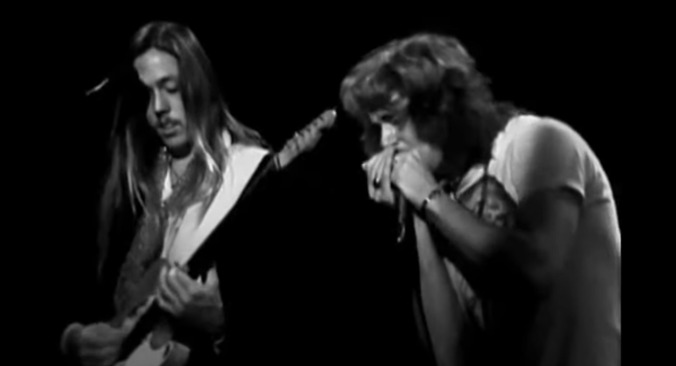Clover’s members didn’t become famous until after the band broke up

We explore some of Wikipedia’s oddities in our 6,230,819-week series, Wiki Wormhole.
This week’s entry: Clover (band)
What it’s about: A band you’ve likely never heard of, even if you’ve assuredly heard music by nearly every one of its members. Clover, a Bay Area country rock band in the vein of CCR, lasted from 1967 to 1978. The band made very little splash through four albums and a dozen singles (none of which charted). But after Clover broke up, the sum of its parts proved to be far more influential than the band itself.
Biggest controversy: Clover’s best-known album isn’t its own album and the band isn’t even in the credits. At some point around ’75 or ’76 (Wikipedia doesn’t give a date), Clover moved to the U.K., where it found some success as an opening act for the likes of Thin Lizzy and Graham Parker, and worked with legendary producer Mutt Lange on its third album, Unavailable. Some Clover band also backed up Elvis Costello on his 1977 debut album, My Aim Is True, but for contractual reasons, couldn’t be credited on the album, and in promotional materials were referred to as The Shamrocks.
Thing we were happiest to learn: Things worked out in the long run for (most of) the members of Clover. Singer Alex Call wrote numerous hits for other artists, including “867-5309/Jenny.” Guitarist John McFee joined the Doobie Brothers, with whom he still performs to this day. Bassist John Ciambotti played with Lucinda Williams and John Prine. Before its extended stay in the U.K., the group recorded some tracks with prolific session drummer Jeff Porcaro, one of the co-founders of Toto.
Clover also added two more members late in its run, keyboardist Sean Hopper, and harmonica player and backup vocalist Hugh Cregg, who used the stage name Huey Louis. After Clover broke up, Cregg fine-tuned his stage name, and he and Hopper formed Huey Lewis And The News. Call wrote a few of their hits, including “Perfect World.”
Thing we were unhappiest to learn: Not everyone went on to fame and fortune. Original drummer Mitch Howie left the group in 1971, and if he had a music career between then and a 2016 Clover reunion, Wikipedia doesn’t mention it. Mickey Shine, who replaced Howie and played on My Aim Is True, joined Tommy Tutone after leaving Clover, but left before Call wrote a hit for the group.
Best link to elsewhere on Wikipedia: The page for My Aim Is True is less an overview of the album and more of a collection of early stories about Elvis Costello. Stiff, his first record label, didn’t consider him as a performer at first, only as a songwriter for other artists. The first artist they paired him with, Dave Edmunds, wasn’t interested, so they asked Costello to record the songs with Clover behind him, solely to convince Edmunds. With Nick Lowe producing, the demos were good enough that Stiff was convinced Costello should be a performer after all. Even then, they wanted him to split an LP with Wreckless Eric, but since Costello had written enough songs for a full album, they decided to give him a chance. He largely wrote the songs quietly at night, so as not to wake his newborn son, or on the subway on his way to work. He only quit his office job when the label promised to match his salary and buy him an amp and a tape recorder.
Further Down the Wormhole: While Clover didn’t find fame as a group while the band was still together, its fortunes did take an upturn once the band moved to the U.K. The United Kingdom of Great Britain and Northern Ireland (not to be confused with Great Britain of England, Scotland, and Wales, or with just plain England) is just 94,000 square miles, but has had an outsized impact on both rock music and colonialism. The country was itself colonized in the 11th century, when French Duke William The Conquerer, uh, conquered a Britain already weak from fighting off a Norwegian invasion. Some Anglo-Saxons (the pre-Norman ruling culture) fled the country, many for Ireland or Scandinavia. But some went further afield, to an enclave in the Byzantine Empire they called New England.
We’ll take a wicked hahd look at the other, older New England, next week.